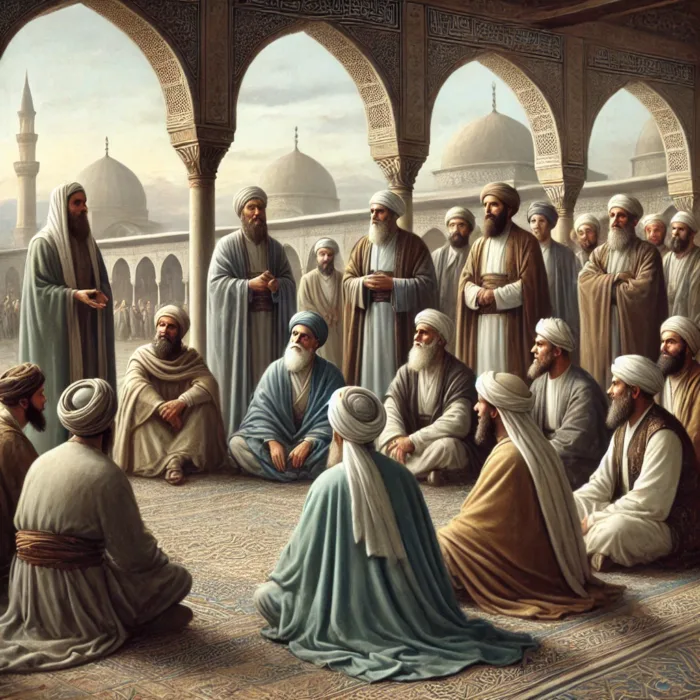Table of Contents
Introduction
The sixth article in the ‘The Era of the Rightly Guided Caliphs‘ series explores how legitimate political authority in Islam stands apart from other systems. It highlights three key elements that define this uniqueness: the divinely preserved Quran, the example set by the Rightly Guided Caliphate, and an independent scholarly tradition that ensures the adherence to Islamic principles. Click here to read the full series.
The Legitimacy of Islamic Political Authority: Principles and Precedents
Today, we turn our attention to the legitimacy of Islamic political authority. When does political authority become legitimate? When are people obliged to offer their obedience and allegiance to it, provided it fulfills its duties toward them? And when are they justified in removing it, rebelling against it, or rejecting its legitimacy?
To begin, we must recognize the importance of political authority in relation to religion. After the death of the Prophet (Peace be upon Him), the Companions (may ALLAH be pleased with them) acted swiftly in choosing their caliph, Abu Bakr (may ALLAH be pleased with him), at Saqifat Bani Sa’ida, even before burying the Prophet’s noble body. This decision was made with such urgency that even Companions who were occupied with burial preparations, such as Ali ibn Abi Talib and Al-Abbas ibn Abdul Muttalib (may ALLAH be pleased with them), were not consulted in the caliphate selection. This underscores the priority the Companions placed on establishing legitimate governance.
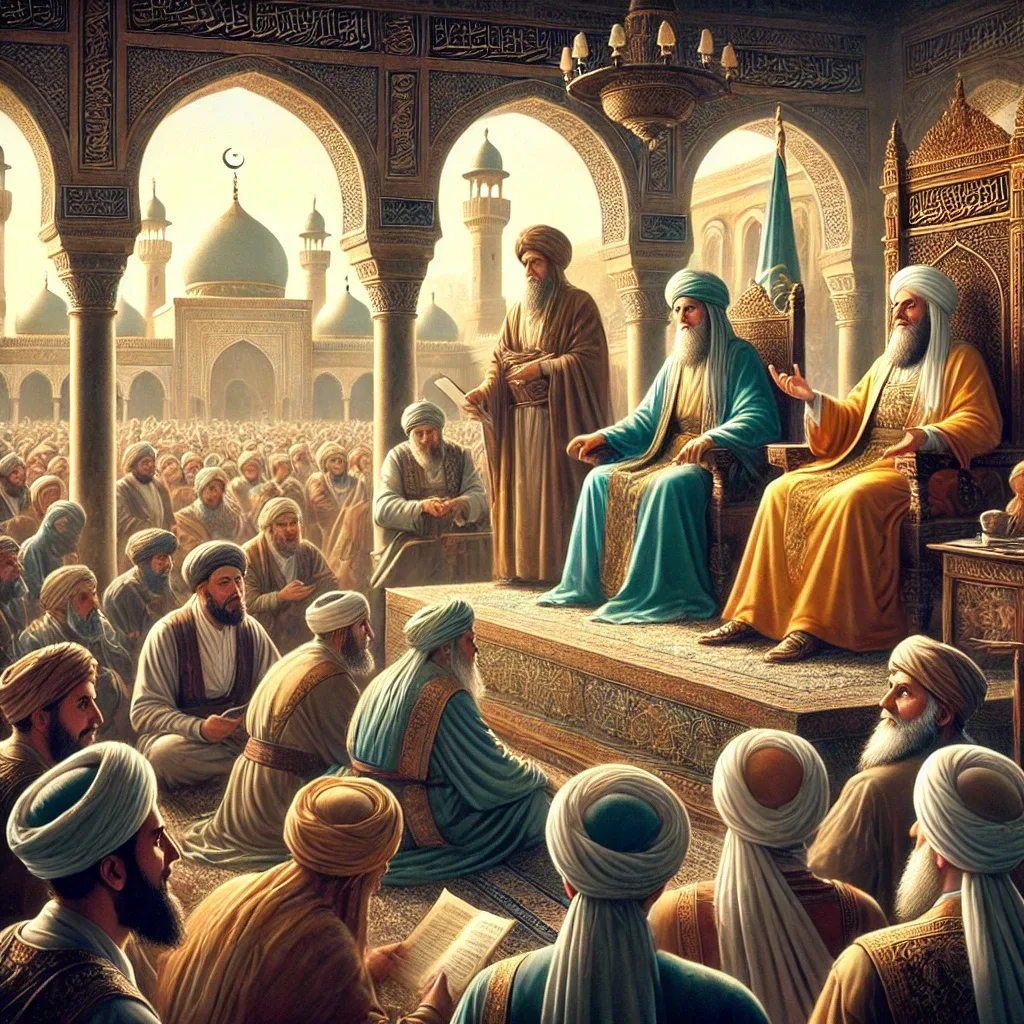
All the Rightly Guided Caliphs were appointed within three days following the death of their predecessor, a practice that became a consensus among the Companions. Scholars have emphasized that appointing a caliph is the highest priority in Islam. The Companions prioritized this matter even above burying the Prophet (Peace be upon Him), understanding that leadership must not be left vacant for more than three days. This is to ensure the community remains united and protected from division or external threats.
The Establishment and Preservation of Islamic Political Authority
The system brought by Islam was fundamentally different from what existed in the pre-Islamic era. Ibn Taymiyyah (may ALLAH have mercy on him) described the pre-Islamic period as one of chaos. This is why the Prophet (Peace be upon Him) said,
“Whoever dies without having given a pledge of allegiance dies a death of pre-Islamic ignorance“1
By this, the Prophet (Peace be upon Him) drew a clear distinction between those who live under a legitimate system, like the Islamic state, and those who lived in the disorganized tribal society of the pre-Islamic era, where there was no centralized governance and communities were fragmented.
Islam introduced a systematic approach to political authority that was revolutionary for its time. The Prophet (Peace be upon Him) even instructed that,
“When three are on a journey, they should appoint one of them as their leader“2
This demonstrates how even the smallest group was urged to maintain an organized structure, emphasizing the importance of leadership and governance. Islam, therefore, brought a concept of organized and legitimate governance that was absent in pre-Islamic customs.
The Companions (may ALLAH be pleased with them) were deeply committed to this system. After the Prophet’s (Peace be upon Him) passing, His work did not falter. Instead, the Companions ensured the continuation of the Islamic state, preserving the unity of the Muslim community. They even expanded beyond the lands that the Prophet (Peace be upon Him) had left behind, extending Islamic governance both to the east and west.
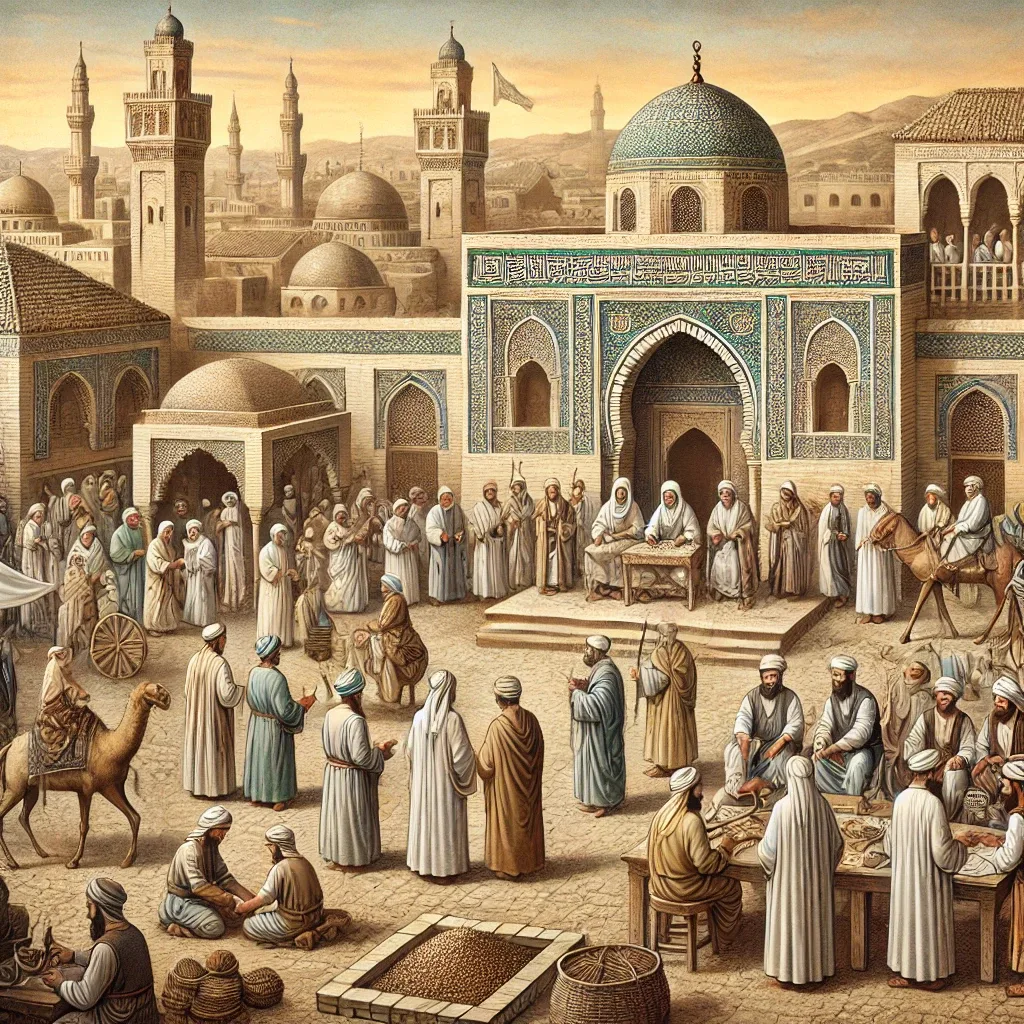
The Companions’ understanding of legitimate governance was rooted in their close connection to the early years of Islam. The Rightly Guided Caliphs, as some of the first Muslims, were uniquely positioned to understand the significance of political authority in supporting the religion. They had lived through the hardships of the Meccan period, where Muslims were weak, persecuted, and constantly under threat. They witnessed the tremendous achievement of establishing the Islamic state when they moved to Medinah. The caliphs, along with the Emigrants and Helpers, preserved this state with their blood, lives, and sacrifices. They never wavered in their commitment to this achievement, always striving to protect and uphold it.
The Historical Evolution of Legitimate Governance: From Force to Divine Claims
Throughout history, the most influential ideas were those supported and spread by states. Historians of civilizations often highlight that great civilizations were built around major religions. The renowned British historian Christopher Dawson discusses how the rise of great civilizations was often intertwined with the establishment of dominant religions.
But how was political legitimacy established outside of the Islamic context, both before and after Islam? Historically, rulers often came to power through force, then enacted laws to serve their own interests. To further solidify their power, they would enlist the support of religious figures—priests, rabbis, monks, and scholars—who legitimized their rule. This pattern has been a consistent thread throughout history.
In some cases, rulers went so far as to claim divine legitimacy. For example, Pharaohs would assert that they were descended from gods or even claimed divinity themselves, as evidenced by Pharaoh’s declaration: “I am your most exalted lord“3 (Suraat ‘An-Naazicaat, 79:24), and “I have not known you to have a god other than me“4 (Suraat ‘Al-QaSaS, 28:38).
This claim to divine authority was so strong that any challenge to Pharaoh’s legitimacy was seen as an attack on the people’s religion and a threat to the stability of the land. As he said, “I fear that he will change your religion or that he will cause corruption in the land“5 (Suraat Ghaafir, 40:26).
Pharaoh justified his rule by pointing to Egypt’s wealth and prosperity, saying, “does not the kingdom of Egypt belong to me, and these rivers flowing beneath me; then do you not see? Or am I [not] better than this one [i.e., Moses] who is insignificant and hardly makes himself clear? Then why have there not been placed upon him bracelets of gold or come with him the angels in conjunction?“6 (Suraat ‘Az-Zukhruf, 43:51-53).
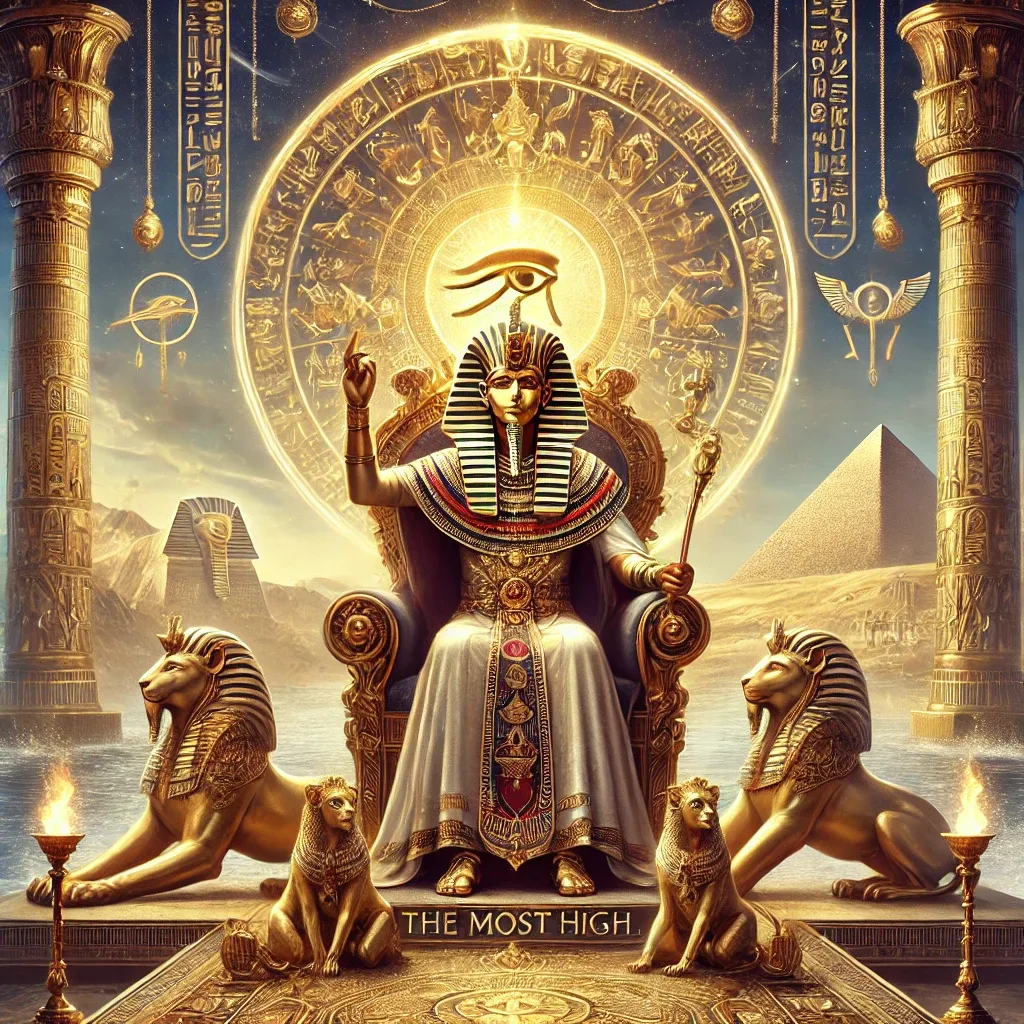
This represents the peak of rulers’ arrogance—claiming divinity as a basis for their power. On the other hand, the least arrogant rulers often justified their authority by claiming necessity, saying that their leadership was crucial during times of crisis and that without them, the country would be lost and corruption would spread. Between these extremes, there were rulers who justified their authority based on noble lineage or strong family and tribal support.
The Continuity of Legitimate Governance: From Ancient Systems to Modern Secular States
The modern secular state, or contemporary Western civilization in its secular form, has not strayed far from the ancient model of governance. In place of priests, rabbis, monks, and religious scholars, we now have constitutional experts and legal specialists. What was once upheld as sacred texts, like the Torah and Gospel, has been replaced by the constitution. The religious banners and flags of the past have been substituted with the state flag, which has become a symbol of sacred authority—an offense against it is seen as an offense against the state itself.
In essence, the method by which rulers acquire and maintain legitimate authority remains largely unchanged. Power is still initially seized through force, after which legal and constitutional frameworks are established to legitimize the new system. For example, in the event of a military coup or a significant shift in political power, the new ruler often issues a “Declaration Number One”, suspends the constitution, and begins to craft a new legal foundation. This process is often supported by legal experts, constitutional scholars, and specialists who help construct a new form of legitimacy, much like the process of legitimizing authority in ancient times.
The Unique Legitimacy of Islamic Political Authority: The Quran as an Infallible, Preserved Text
The Islamic case for establishing legitimacy is unique, distinguished by three key elements that set it apart from other historical experiences.
First: The sacred text of Muslims is the Quran, a text neither written by humans nor composed during times of power. The German philosopher Nietzsche famously said, “Law is merely an expression of the desires of the powerful”. In many systems, when the powerful gain control, they inscribe their desires into law and impose them upon others. Even Dr. Abdul Razzaq El-Sanhuri, a renowned legal expert, asserts, “Law governs between equals; where equality is absent, law vanishes and force becomes law”. A poet once said,
“Justice exists only when powers are equal
and terror clashes with terror“
In these systems, law reflects the desires of the powerful—written by the victors at the height of their strength. However, the Quran is different. It was revealed by ALLAH, not composed by humans, and therefore contains no human desires, flaws, or imperfections. It was not written at a time of power or victory; rather, it was revealed during the Prophet Muhammad’s (Peace be upon Him) life, guiding every aspect of Muslim life from the early days of the call to Islam, long before the establishment of Islamic political authority.
Furthermore, the Quran is a preserved text—its authenticity is safeguarded against distortion, addition, or deletion. It remains unchanged and has been memorized even by children in traditional schools. Thus, Muslims have an infallible, preserved text free from human desires, one that was not written during a time of power to express ambitions for domination or control.
The Three Pillars of Islamic Political Authority: Sacred Text, Historical Precedent, and Scholarly Independence
The second distinguishing feature of Islamic legitimate governance is the clear historical model it follows—namely, the period of Prophethood and the Rightly Guided Caliphate. The Rightly Guided Caliphate, in particular, serves as a practical example of governance by humans after the revelation had ceased, providing a model for Muslims to emulate in political practice.
The third element is the scholarly tradition in Muslim lands. This tradition preserves the infallible text and the religion brought by the Prophet Muhammad (Peace be upon Him), as implemented by the Rightly Guided Caliphs. However, it is not an institutional state or a rigid hierarchical structure. Instead, it is a widespread movement in which anyone can become a scholar. These scholars do not operate under a centralized authority that can be controlled by political power, unlike the Church in certain historical periods, where a centralized, hierarchical structure answered to one head and wielded substantial spiritual influence over the people.
The Church, as an organized institution, could exercise immense control over people’s spiritual lives, such as preventing them from prayer or granting indulgences. This power could be utilized by the governing system if it chose to use the Church for its own purposes—something that often occurred.
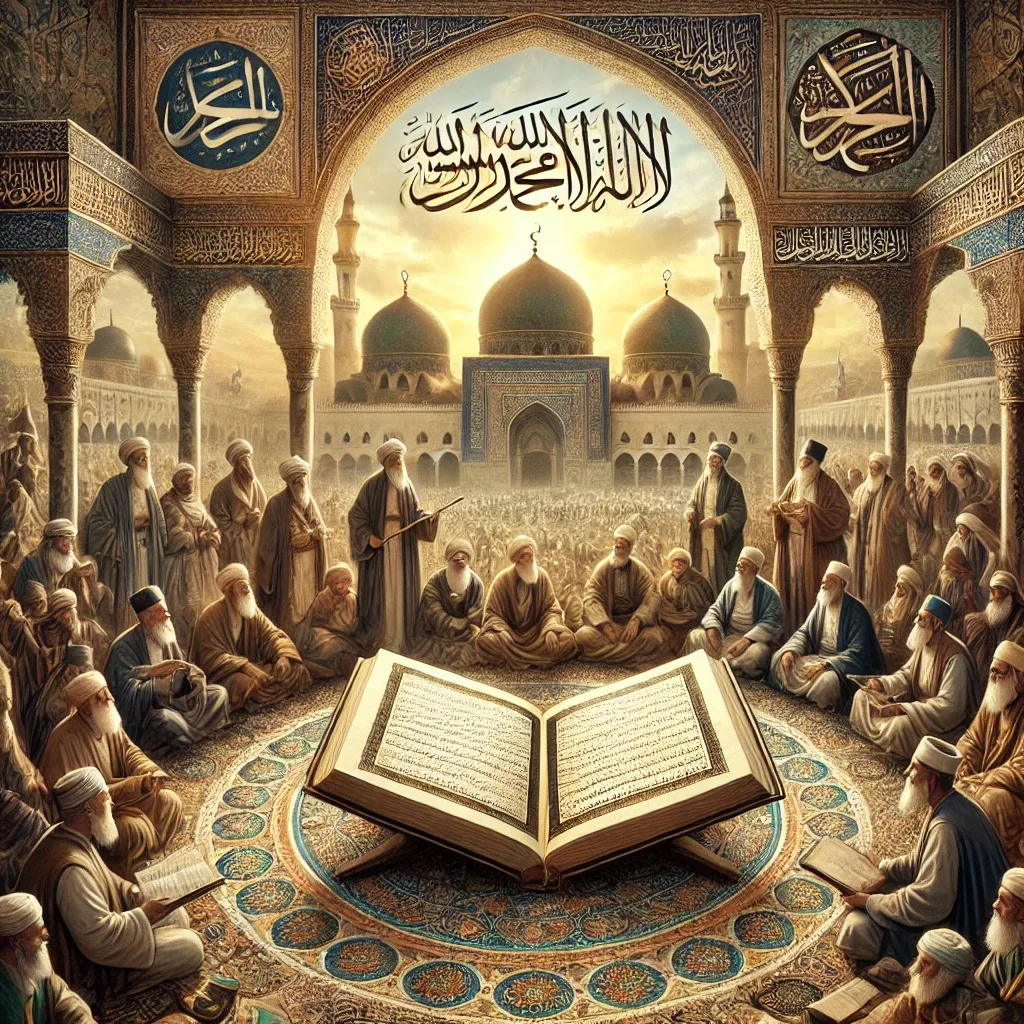
These three elements make Islamic political authority distinct:
- A preserved sacred text, not written by humans during times of power.
- A clear, relatively long historical period (about thirty years) that exemplifies the Rightly Guided Caliphate.
- A scholarly tradition that exists outside of any governing system’s control.
Because of these features, political authority in Islam cannot easily legitimize itself. Even if it manages to attract corrupt scholars or scholars who align with the rulers, or if it grants them positions such as Mufti or Chief Judge, these scholars can only interpret texts. Their interpretations remain open to scrutiny by the broader scholarly community. Typically, scholars who align with political rulers or who are seen as corrupt remain outcasts in the wider Islamic scholarly tradition.
Islamic Political Authority vs. Secular and Other Civilizational Models
So how does political legitimacy form in the Islamic model? The Islamic system is unique in that it builds its political structure through these three foundational elements: the existence of the preserved text (the Quran), the clear historical model of the Rightly Guided Caliphate, and the scholarly tradition that is not confined to any institutional framework. This combination is unlike anything found in other civilizational models.
Other civilizational models may have one of these elements:
- Some civilizations have no preserved sacred text at all, as is the case with man-made religions and ancient faiths, where the texts are unverifiable and often based on oral traditions.
- Others may have a sacred book, but no comprehensive legal system, such as Christianity. Christians revere the Bible as a sacred text, but it does not provide a detailed legal framework for governing state affairs.
- Some have religious law within their sacred texts, but no clear historical model showing how to manage state affairs and politics, as in the case of Judaism.
- And then there are those systems, like secularism, which have no preserved sacred text at all. Instead, they rely on human-made constitutions that can be altered and modified at will, with their sanctity coming only from the authority granted to them by the people.
In the present day, the true civilizational competition exists solely between the Islamic model and the secular Western model. The secular Western model encompasses not only Christianity but also ancient and Eastern religions. It is expanding into regions like India, China, and Japan without facing any significant civilizational resistance. Even Judaism, with its model in Israel, can be seen as a manifestation of Western civilization rather than an independent, competing model.
The Foundations of Legitimate Governance in Islam: The Role of Religious Obligation and Community Consent
How is legitimate governance formed in the Islamic model? It is based on two fundamental principles:
First Principle: The authority must fulfill its religious obligations, following Islam, defending Islam, and upholding Islamic rights.
Second Principle: Muslims must choose this authority.
These two pillars define legitimate political authority in the Islamic system. These principles are drawn not only from Islamic texts but also from the historical example of the Rightly Guided Caliphate. Every caliph during this period was chosen by the people.
No caliph imposed themselves upon the community, no one claimed the caliphate through divine right or personal merit, nor did anyone seize it through force. All the Rightly Guided Caliphs were chosen with the community’s consent and selection. This forms the second principle—authority must be based on the community’s choice.
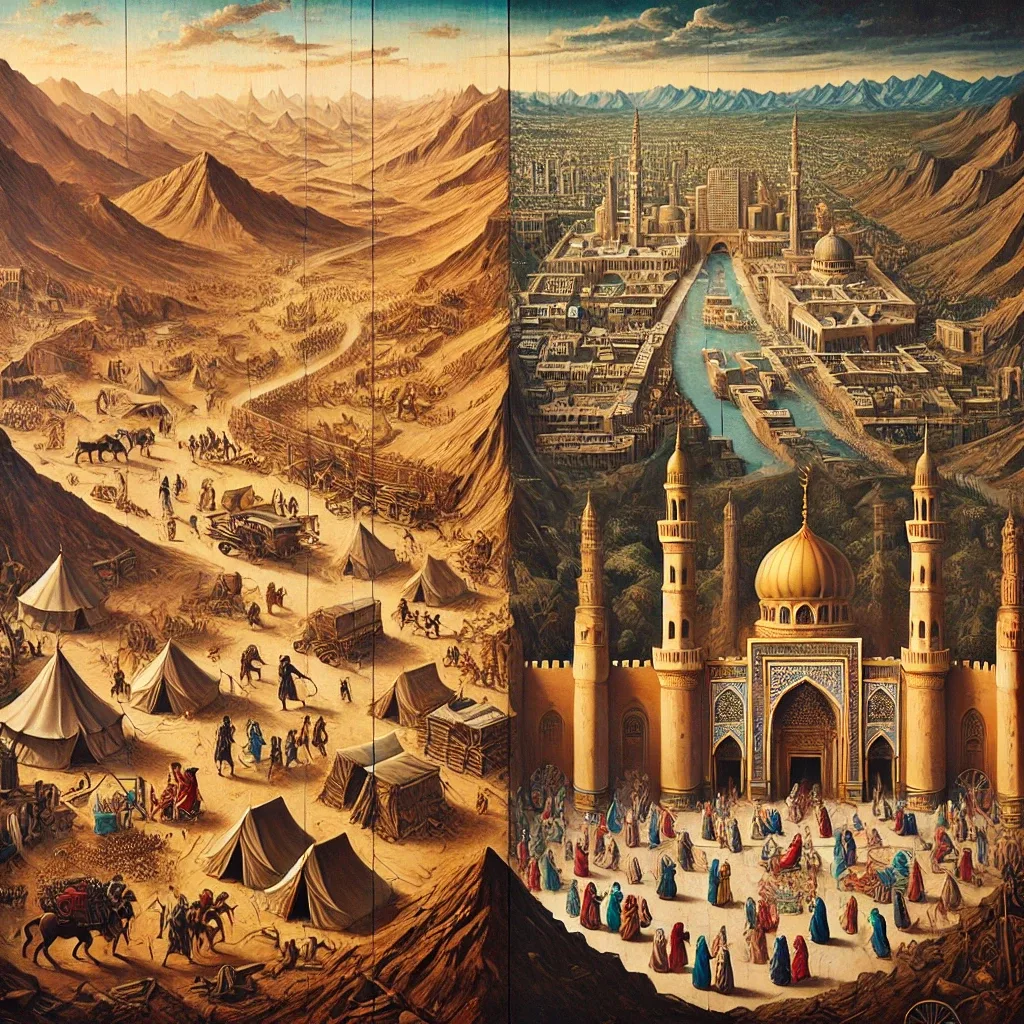
The first principle is that this authority must perform religious duties, upholding Islam and its laws. Each caliph, upon receiving the pledge of allegiance, committed to upholding the Quran and the Sunnah of the Prophet Muhammad (Peace be upon Him). After the caliphate of Umar, the pledge also included the way of Abu Bakr and Umar themselves, given their special status as mentioned in the hadith:
“Follow those who come after me: Abu Bakr and Umar“7
During the time of the Rightly Guided Caliphate, these two principles were clearly realized. The authority was inherently Islamic, deriving directly from Islam. This was reflected in the first words of Abu Bakr (may ALLAH be pleased with him) when he assumed the caliphate: “I have been appointed over you, though I am not the best among you. If I do well, support me; and if I err, correct me. Obey me as long as I obey ALLAH regarding you, and if I disobey HIM, you owe me no obedience“.
This statement by Abu Bakr encapsulates the supreme reference point and governing principle for the legitimacy of authority in Islam. The legitimacy of authority is seen in the Ummah’s duty to obey the leader only as long as he adheres to the commands of ALLAH and HIS Messenger. If he deviates from this path, his authority no longer holds.
The Scholars’ Response to Political Change: Balancing System Integrity and Leadership Legitimacy
Later, scholars found themselves confronting a new reality — one where force and dominance played a central role. In this scenario, the legitimacy of political authority lost one of its key pillars: a caliph chosen by the people. Instead, a caliphate would be imposed by someone with power, strength, and support, even though the leader did not have the community’s explicit choice. Despite this, the caliphate would still operate within the framework of Islam, fulfilling the key responsibilities of a legitimate authority: protecting the borders, maintaining security, enforcing legal punishments, and leading armies for Jihad. The authority continued to carry out its Islamic duties, though it lacked the community’s consent in choosing the leader.
At this point, scholars shifted their focus, prioritizing the Islamic nature of the authority over the process of the caliph’s election by the people. In modern terms, this meant preserving the system itself, even if they had to compromise on the individual leader. They emphasized that the Islamic system should remain intact, even if the chosen caliph did not align with the ideal process of being selected by the community.
When it came to situations where the authority veered into disbelief, scholars unanimously agreed that if the leader fell into disbelief, they would lose their legitimacy and be removed. If the leader’s actions threatened the very Islamic character of the system—removing its Islamic nature or deviating from its foundation—then such authority would have no legitimacy.
This balance struck by the scholars was a preference for maintaining the Islamic system over the individual ruler. The debates that followed explored the conditions under which a ruler who took power by force could be recognized: When should they be given allegiance? What limits should be placed on obedience to them? What rulings should apply to those who rebel against them?
Ultimately, if a ruler shifted from Islam to disbelief or showed an intent to do so, scholars would strip them of all legitimacy. Thus, legitimate political authority in Islam follows a unique pattern, not based on force, as in other systems, but governed by Islamic law, its foundational system, and the understanding of the Muslim community. This authority derives its legitimacy from:
- Preserved texts
- A righteous historical period
- A scholarly tradition that no ruler can contain
May ALLAH, the Exalted, grant us beneficial knowledge, benefit us with what HE has taught us, and increase us in knowledge.
Sources:
- Mohamed Elhamy. محمد إلهامي | عصر الخلافة الراشدة | 6. شرعية السلطة في الإسلام. YouTube Video.

